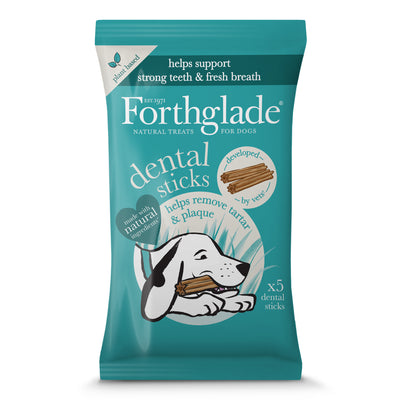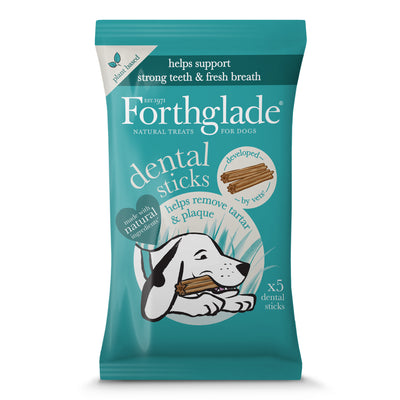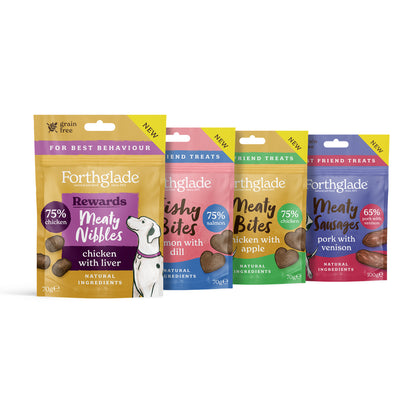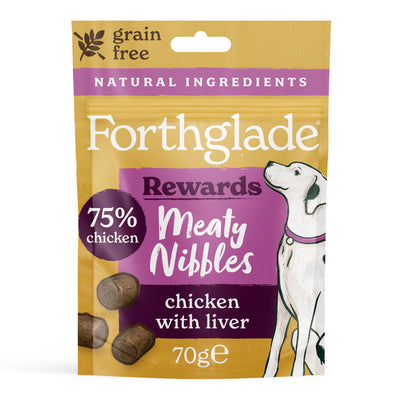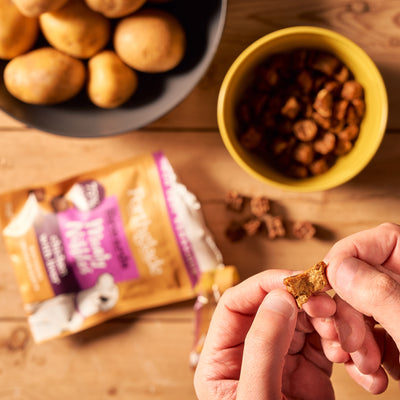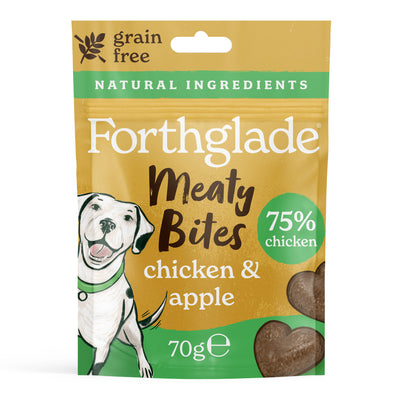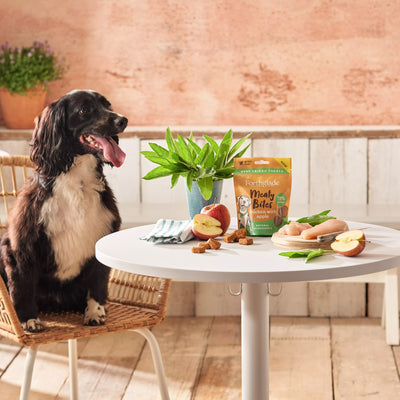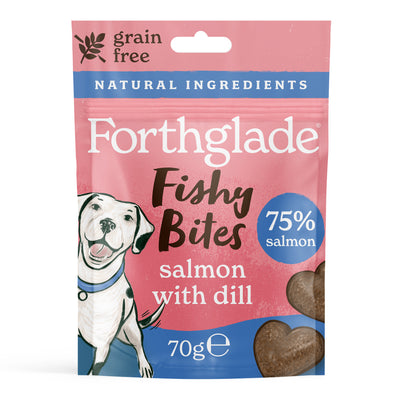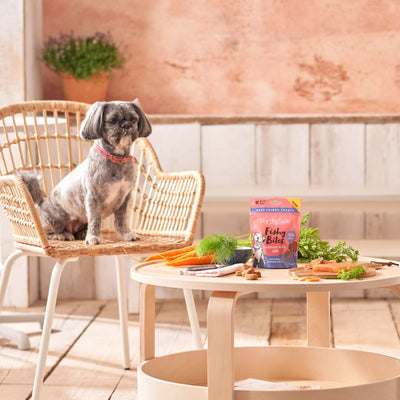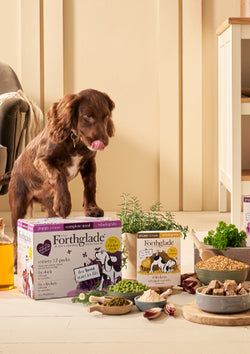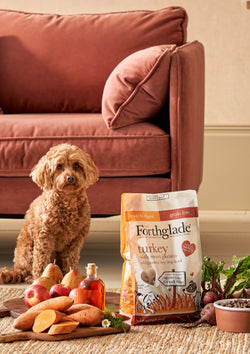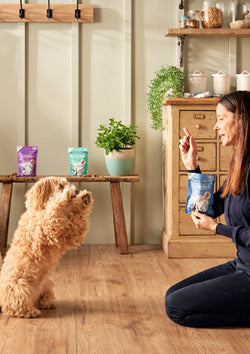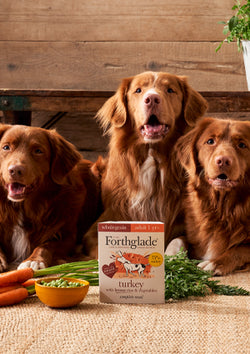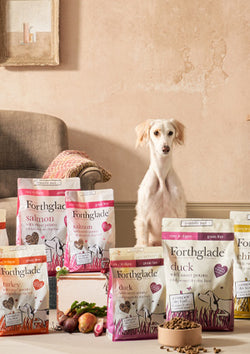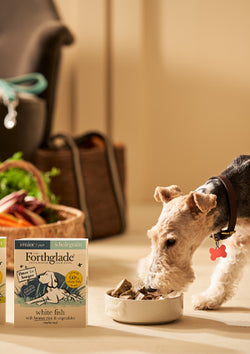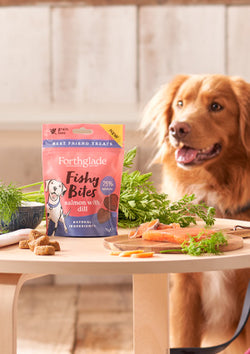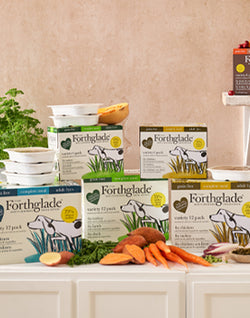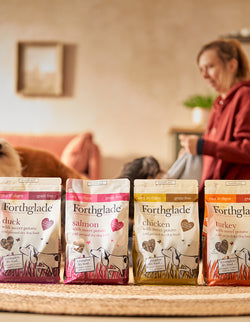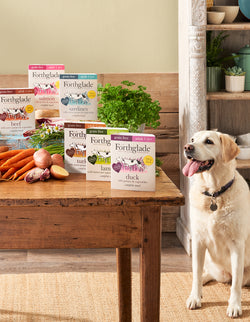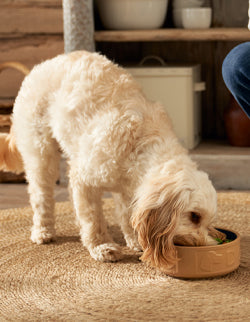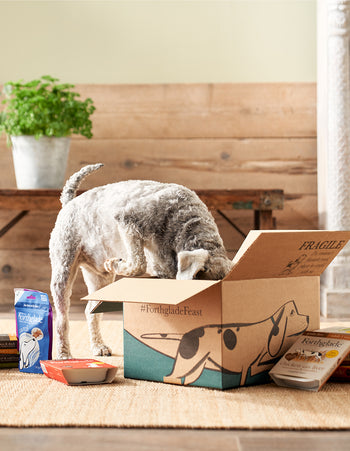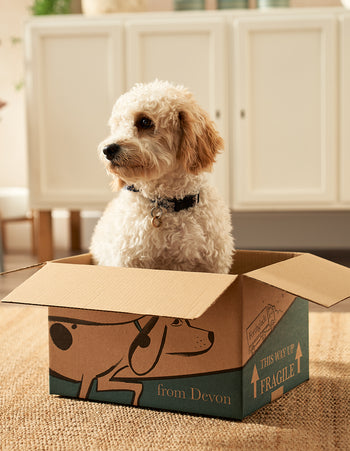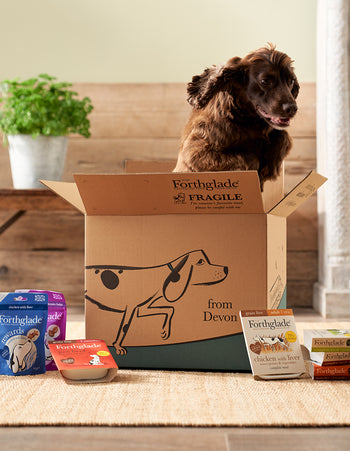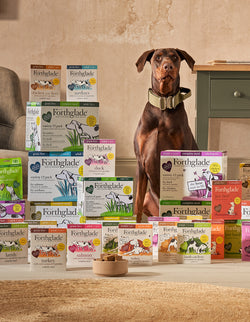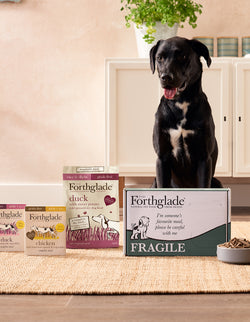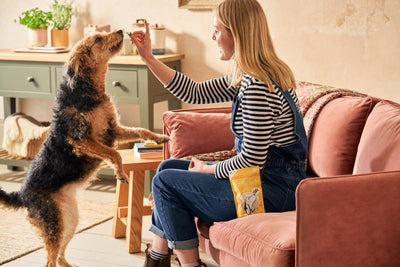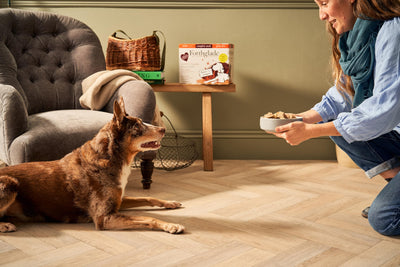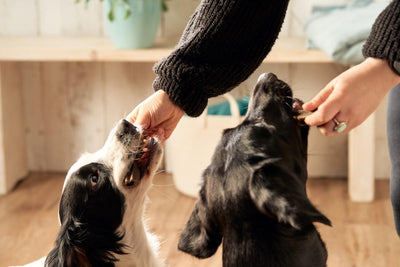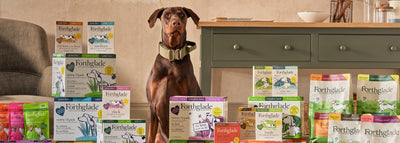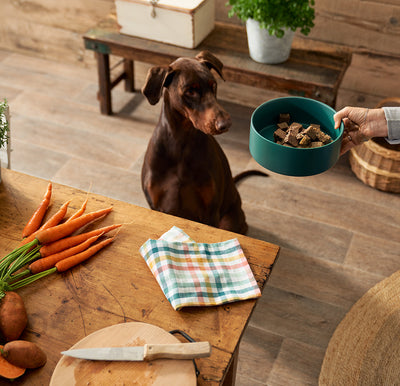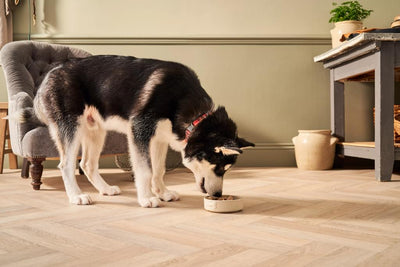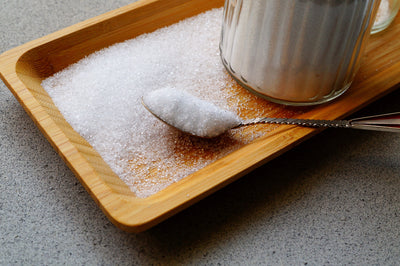
The short answer is no. Dogs cannot eat chocolate. It seems so unfair that one of our tastiest treats is out of bounds for our canine companions. But read on to find out why, and how to recognise the symptoms of chocolate poisoning if they do get their paws on this forbidden food.
Why Can’t Dogs Eat Chocolate?
Chocolate contains theobromine and caffeine - both of which speed up the heart rate and stimulate a dog’s nervous system. Although theobromine is easily digested by us humans, it can't be broken down by a dog’s digestive system, therefore becoming toxic.
But it's not just the amount of chocolate that has an effect on how badly a dog reacts. The percentage of cocoa and the darkness of the chocolate also has an effect. Darker chocolate contains a higher level of the toxic theobromine. As a rough guide, just 50g of plain chocolate could be enough to kill a small dog such as a Yorkshire Terrier, while around 400g could be enough to kill an average size dog.
Symptoms Of Chocolate Poisoning In Dogs
If your dog ingests theobromine at a toxic dose, it can send their bodies into overdrive. Look out for the following symptoms:
- Vomiting
- Diarrhoea
- Dehydration or excessive thirst
- Hyperactivity and excitability
- Weeing more than usual
Chocolate poisoning symptoms will begin to develop between 2-12 hours after ingestion and can last for 72+ hours. Look out for the following symptoms in more severe cases of poisoning:
- Fast breathing or panting
- High temperature and blood pressure
- Abnormal or very fast heart rhythm, shaking or tremors
- In severe cases, epileptic-type fits
What To Do If Your Dog Eats Chocolate

The sooner treatment is given by a vet, the greater chance of recovery. If you believe your dog has eaten chocolate, call your vet and inform them of the amount eaten, the type of chocolate consumed and the size of your dog. Based on this information, they will recommend whether you monitor your dog from home and call back if symptoms worsen. Or they will advise you to bring in your dog to the surgery as a matter of urgency.
For additional information, the Animal Poison Line is available for 24/7 advice or you can access a ‘Dog Chocolate Toxicity Calculator’ as recommended by the PDSA. These are only intended as guides and are no substitute for professional veterinary advice and intervention.
Treatment for Chocolate Poisoning
Your vet will decide what course of treatment is appropriate depending on how much and what type of chocolate has been ingested, and the size/ age of your dog. Some of the following treatments are used:
- Monitoring - to look out for any signs of deterioration. This could be done by you at home or in the surgery/ hospital if they have been admitted.
- Fluid drip - to hydrate the body while it flushes out toxins and to support your dog’s organs. This will depend on the severity of their condition.
- Induced vomiting - via injection if your dog has been brought to the vet within a few hours of ingestion.
- Sedation - if your dog is suffering from seizures or tremors.
- Activated charcoal - a safe and effective treatment for dogs that have ingested toxins or poisons. It prevents toxins from being absorbed into the bloodstream. This can be administered at home at the advice of your vet.
Always contact your vet first to get the correct diagnosis and treatment.
Protecting Your Dog From Chocolate Poisoning
However tempting it may be to share your treats, even in tiny amounts, please do not give chocolate to your dog. The cost to both your dog’s health and your pocket will be significant. Here are a few tips to help keep your dog safe:
- Store chocolate and other rich human treats where dogs can't reach them - on a high shelf or in a cupboard
- Remind children to not leave their chocolate where dogs can sniff it out
- Be extra vigilant at Easter, Christmas and birthdays when chocolate treats are all around
- Teach your dog the command ‘leave it’ - so they know the rules
- Provide dog-friendly treats as an alternative
Whilst chocolate poisoning in dogs can occasionally be fatal, most cases result in full recovery with few long-term problems. Think ahead, act fast and be attentive to any symptoms that may develop in case of accidents.
